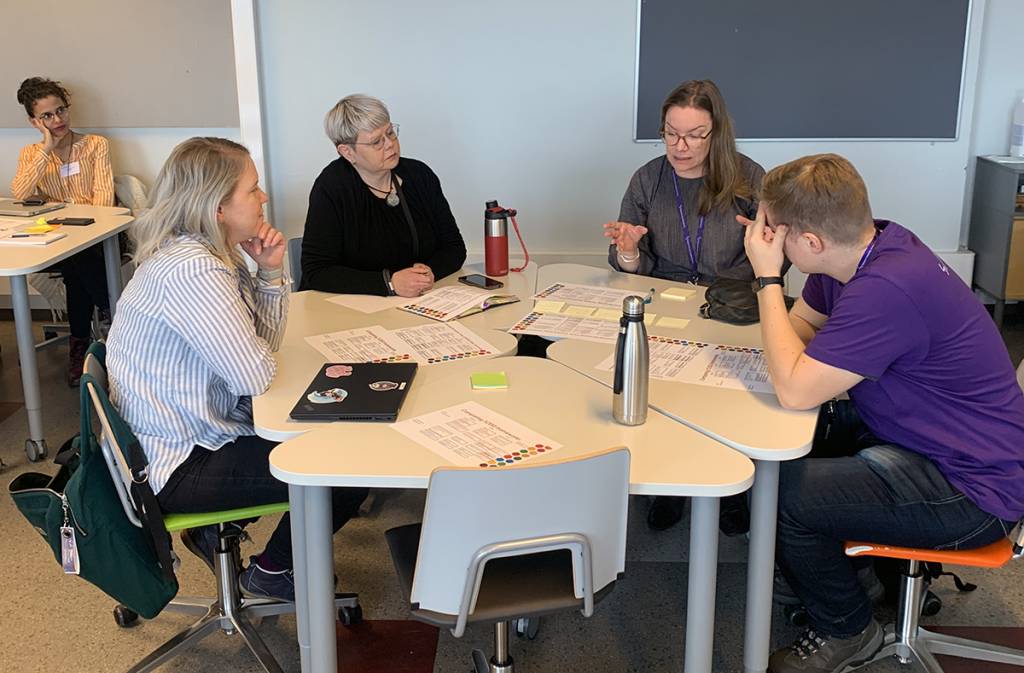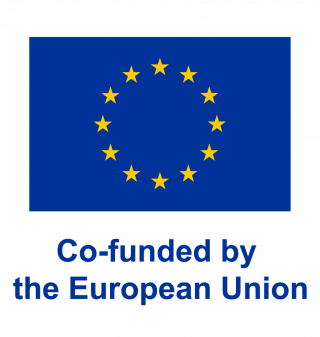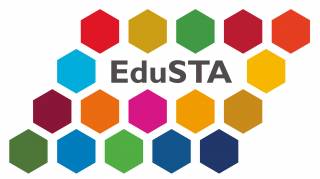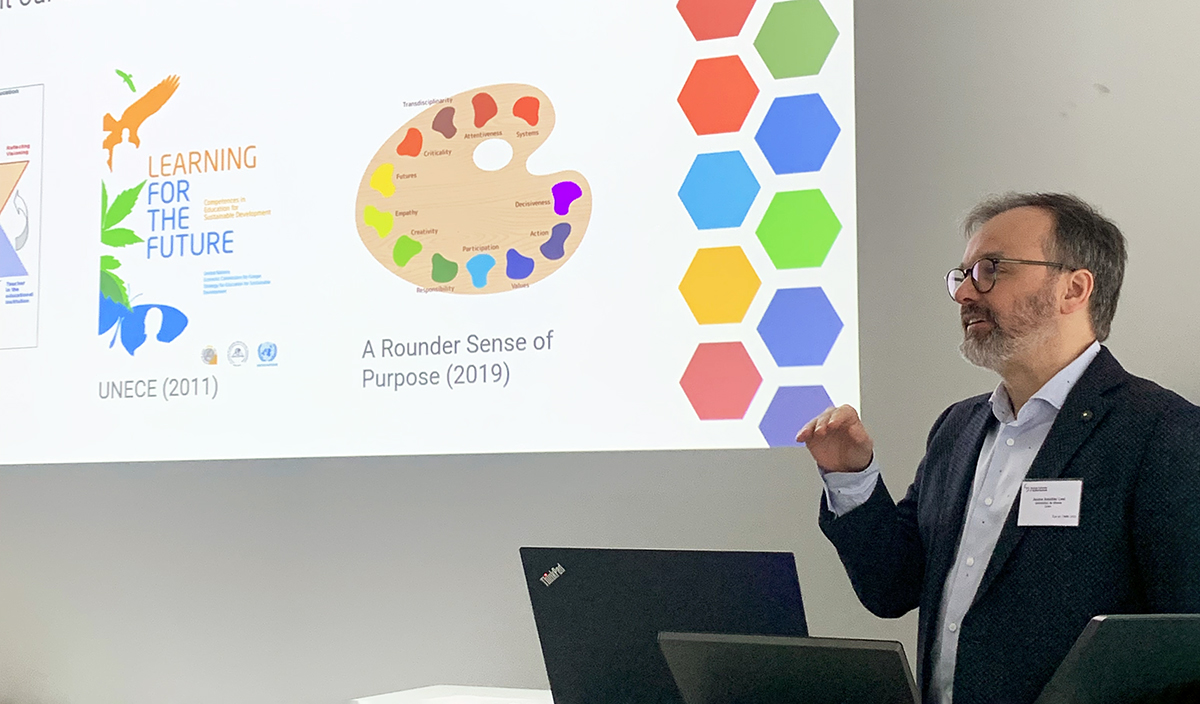“We see teachers as active change makers in the green transition. It is quite special that an Erasmus+ project relates to developing teacher education and to teachers’ competences. Therefore, we try to make these teachers’ sustainability competences as concrete as possible. Otherwise, they would be only ideas and descriptions that are too vague”, says Project Lead and Senior Lecturer Eveliina Asikainen from Tampere University of Applied Sciences.
She emphasizes that we cannot assume that everyone already has this kind of competences, so there must be educational possibilities for people to learn. The project is using Digital Open Badges as a vehicle for recognition and documentation of competences.
Building a common ground inside the consortium
To start with, the project team has developed a shared understanding on concepts and background by reading research literature and policy documents, interviewing experts and workshopping with practitioners. Based on the results of the background research, educational contents and pedagogical guidelines for Competence Based Digital Open Badges will be developed.
The main goal of the project is to build an academy, i.e., form a learning community that provides a study offering intertwined with digital badge driven pathways. The project team is excited to share the experiences in walking the talk of educating teachers for sustainable future. The results will be published openly during 2025.

“This is what we are doing now. We will define badge criteria, and then design outlines for course contents and pedagogics that enable the teachers or teacher students to meet the badge criteria. We will provide easily accessible materials and instructions this year in order to start piloting early next year”, says Asikainen.
Reviewing three significant frameworks
“First, we looked at the literature to learn what happens in the field of education for sustainable development. In Europe, there’s a lot of theoretical discussion”, describes Jaume Ametller, Associated Professor from the University of Girona.
He has led the review of three major frameworks of teachers’ competences for ESD (Education for Sustainable Development). The reviewed frameworks include CSCT (2008), UNECE (2011) and A Rounder Sense of Purpose (2019).
In CSCT framework the general competences are teaching, networking, and reflecting or visioning. The dimensions of competences are action, knowledge, systems-thinking, values and ethics, and emotions. The framework also acknowledges three dimensions of teacher’s work; teacher as an individual, teacher in educational institution and teacher in the society.
UNECE framework starts with three ESD characteristics: holistic approach, achieving transformation, and envisioning change. These competence areas are applied to learning to know, learning to do, learning to be, and learning to live with others. When they cross, they produce 39 competences which are, according to Ametller, insightful but also different in nature.
In UNECE framework sustainable development is seen as an evolving concept. It is important to build from the experiences of learners, to encourage negotiation of alternative futures, and to challenge unsustainable practices across educational systems. Teachers need to be critically reflective practitioners.
In A Rounded Sense of Purpose (2019) the basic ideas are the same, but integration, involvement, practice, and reflexivity have been added as competences. Integration includes systems, futures, and participation. Involvement consists of attentiveness, empathy, and values. Practice is linked to transdisciplinarity, creativity, and action. Reflexivities are criticality, responsibility, and decisiveness.
Amettler summarizes the three frameworks.
“They need to be more concrete to be useful to us. We don’t want to come up with a new framework, so we have been comparing these frameworks in characteristics and dimension. We must continue thinking out of the box, and there is a certain urgency to get on. Are they really different? And how is this connected with our work? This is what we reflect now.”
Text: Hanna Ylli
Photos: Sanna Ruhalahti


